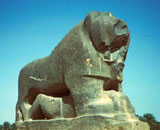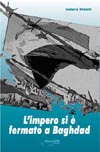January 9, 2010
Though not being reported in the mainstream American press, there is a very intense struggle going on between the U.S. and China to determine which nation will emerge as the dominant presence in Central Asia. These two economic giants, the U.S. declining and China rapidly growing, know full well that their economic future depends entirely on their ability to acquire critical resources; in the case of the U.S., it's primarily oil, while with China it's both oil and natural gas.
The specific Central Asian region of which I speak, rich in natural gas and oil, includes India, Pakistan, Afghanistan, China, Uzbekistan, Tajikistan, Turkmenistan, among others. Russia, which borders the region and Iran are also key players. Transport of these critical resources via current and planned pipelines is at the center of the struggle to determine who will control them into the future. To understand the magnitude of this struggle we need to begin by examining the strategy that the U.S. is pursuing in Afghanistan and Pakistan as related to its greater objectives in Central Asia.
Our president talks about a surge in Afghanistan; but that represents only the initial stage in the overall strategy that America is pursuing in Central Asia. The real surge will follow as the U.S. becomes more involved with military actions to establish a presence in Pakistan. There has been constant pressure by the U.S. on the Pakistani government to have their troops increase actions against insurgents in South Waziristan near the Afghan border as well as in other Taliban-controlled areas.
The U.S. is also increasing the use of drones in Pakistan in remote areas with the reluctant permission of the Pakistani military. But, apparently, that's not enough and now those operating the drone program want to extend it into Balochistan, the largest province in Pakistan; and in its largest city, Quetta. If the leadership of Pakistan allows this very aggressive, misguided use of drones within its cities, then they are opening the door to massive civil violence that could lead to domestic disaster.
So, it becomes apparent where Mr. Obama's surge is heading. Without a doubt, all these moves into Afghanistan and the increasing pressure on the government of Pakistan portend that America will become involved in yet one more war in another sovereign nation. It is also evident that Obama has now fully adopted the Bush doctrine of pre-emptive war; that is to strike within the borders of any nation where the U.S. deems the "enemy" exists.
Existing pipelines in Central Asia are currently capable of getting only a fraction of the total potential oil and gas wealth to market. Central Asian nations and Iran are very anxious to sell more gas and oil. The U.S., Europe, Russia, India, Pakistan and China are anxious to buy more. The only thing holding back the desired transport of gas and oil is the construction of new pipelines. That's what this grand chess game is all about and why the U.S. and NATO are right in the middle of all the action and activity.
The reason the U.S. is setting its sights on Balochistan and the city of Quetta is that this area has been identified as a key transit corridor for both natural gas and oil. There are plans for two pipelines that would transit through Balochistan; the IPI is the Iran-Pakistan-India pipeline that the U.S. is dead set against because of Iran's involvement. Then there is the U.S. backed TAPI, the Turkmenistan-Afghanistan-Pakistan-India pipeline. Unfortunately, the Taliban tribes in Afghanistan are not being cooperative and that's why they must be pacified. This is easier said than done.
In Balochistan, China has provided funds and expertise to construct a deep sea port at Gwadar, which provides China with a transit terminal for crude oil imports from Iran and Africa to China's Xinjiang region. This strategic port, together with rail and road links connecting Pakistan with Afghanistan and Central Asian nations will give China an important opening into Central Asian markets and energy sources. The U.S. is trying to counter these moves by China in every way possible because of its own competing interests.
China has also been aggressively negotiating to buy natural gas in Central Asia which has just resulted in the commissioning of a 1,833 kilometer pipeline connecting gas fields in Turkmenistan, Uzbekistan and Kazakhstan. By 2013, the Chinese cities of Shanghai, Guangzhou and Hong Kong will be receiving substantial quantities of gas. This amounts to a resounding defeat for the U.S. whose competitive proposals were rejected.
So if anyone still thinks that the surge in Afghanistan is strictly intended to defeat the Taliban and the remnants of Al-Qaeda, it's time to think again. This is the new launching point for the eventual control of the Balochistan region. The threat of Iran becoming a major player because of its gas and oil resources and the desire of China to also become involved in that area must be neutralized at all costs.
We are just in the beginning stages of a new chapter in this grand chess game that pits the U.S. against China in achieving dominance in the world's natural resources, primarily oil and gas, for many years to come. So far, China has used diplomacy and negotiations around the world and has stayed completely away from involvement in wars. Conversely, the U.S. has initiated wars and occupations in Iraq and Afghanistan at staggering costs to achieve its goals.
We are going to hear more and more reports of various types of incursions into Pakistan by various means; the use of drones will greatly intensify, and Blackwater (now renamed XE) is actively setting up clandestine operations in Islamabad, the Pakistani capital. Whether U.S. and/or NATO troops will actually make incursions into Pakistan is anyone's guess but, if that happens , then the situation could become very dire indeed.
What I'm describing is not an unsubstantiated theory. It has been well documented, not in the Western press, but by major Asian news outlets; the Asia Times, headquartered in Hong Kong, is closely monitoring this grand chess game being played out. There is no great secret in that area of the world as to what is really happening and why.
At this point, China is winning the grand chess game because of its apparent ability to use diplomacy in securing critical resources. The danger is that the U.S., rather than using diplomacy, is committed to using military "persuasion" to achieve its objectives. Carrying out such aggressive military policies in a region where four nations with nuclear capabilities -- Russia, China, India and Pakistan -- exist is moving this game into a highly dangerous phase.
|
















